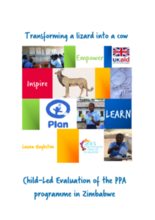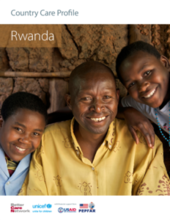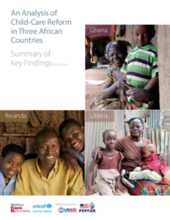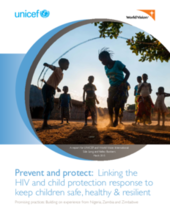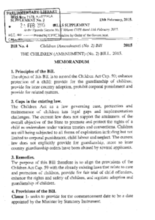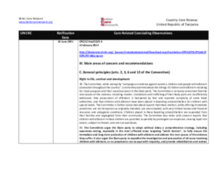Displaying 1161 - 1170 of 1622
In 2011 Plan International UK secured a Programme Partnership Agreement (PPA) with the Department for International Development (DFID). This strategic funding has been used to develop the Building Skills for Life Programme.
This country care profile provides an overview of key lessons learned in the children’s care reform process in Rwanda, including successes, challenges and areas for progress, and gaps in learning and best practice.
This report summarizes the care-reform process of three sub-Saharan African countries – Ghana, Liberia and Rwanda.
This report from UNICEF and World Vision International documents country level approaches that respond to HIV and child protection challenges facing children and adolescents by linking both those responses.
This easy to use resource from the Ministry of Gender Labour and Social Development in Uganda, in consultation with civil society, outlines a continuum of care framework for responding to vulnerable children.
In 2015, the Parliament of the Republic of Uganda considered the Children Amendment Bill, which has several implications for children’s care in the country. The object of the bill is to amend the Children Act Cap. 59, enhance protection of a child, provide for the guardianship of children, provide for inter country adoption, prohibit corporal punishment, and provide for related matters.
This country care review includes the care-related Concluding Observations adopted by the Committee on the Rights of the Child as part of its examination of the third to fifth combined periodic reports of Tanzania (CRC/C/TZA/3-5).
This study sought to understand gender differences in potentially traumatic events (PTEs) in orphaned and separated children in 5 low- and middle-income countries (LMIC): Cambodia, Ethiopia, India, Kenya and Tanzania.
Since its adoption in 1989, 193 countries have ratified the UN Convention on the Rights of the Child and Somalia has just become the 194th.
Having signed the Convention on the Rights of the Child in 2002, the Somali Parliament has now voted to ratify the Convention and President Hassan Sheikh Mohamud has signed it.

